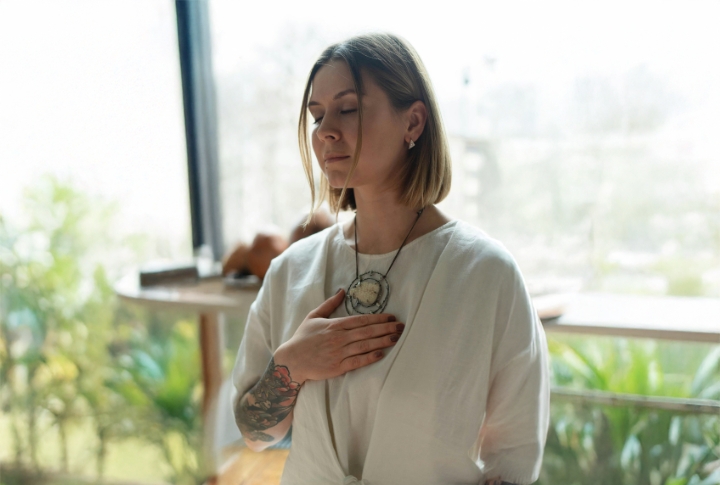
Pain has a way of shaping us, but it doesn’t have to chain us. There are many powerful ways to transform past hurts into strength and happiness, and you’ll get 20 of them here. Begin with an open mind and find what feels right for your own unique path forward.
Practice Daily Gratitude

Practicing daily gratitude isn’t just feel-good advice. It literally rewires the brain to think more optimistically and builds better stress tolerance. People who write down what they appreciate tend to sleep more soundly. Consistent gratitude even helps the immune system fight off illness more effectively.
Connect With Supportive People

Surround yourself with caring people. Strong social ties extend lifespan and lower depression risk. Being alone too much raises heart disease risk by 29%, but staying connected helps heal from trauma faster. Trusted friends and family can lift spirits in tough times and add more years to life.
Reframe Negative Thoughts

Simple thought changes can make big emotional and physical differences. Switching how thoughts are viewed can soften depression and sharpen the mind’s ability to adapt. Athletes reframe failure to build resilience. This mental shift reduces cortisol, a stress hormone tied to poor health.
Set Healthy Boundaries

Setting healthy boundaries reduces anxiety and resentment and boosts self-worth by clarifying what’s acceptable. Say “no” when necessary and mean it. Most people believe boundaries are key in romantic relationships, and they aren’t wrong. Strong limits also guard against emotional burnout, keeping relationships and mental health in better shape.
Learn To Forgive Yourself

Forgiving oneself frees the mind from guilt’s grip. It soothes shame and begins true healing inside. Growing self-compassion takes courage but changes how pain feels. Surprisingly, forgiving inwardly benefits the heart as well. Sometimes, the most powerful mercy is the one given to oneself.
Keep A Healing Journal

A healing journal holds truths no one else sees. Writing clarifies feelings hidden in busy thoughts and sharpens problem-solving while also aiding the body’s recovery. Trauma softens on paper as it finds a safe place to rest. Words can be the bridge from pain to peace.
Try Mindfulness Meditation

Mindfulness meditation has clear health benefits. It reduces stress and helps lower blood pressure. Regular practice enhances focus and promotes greater self-awareness. This activity can also shrink the amygdala and increase gray matter density, leading to improved emotional and cognitive stability.
Volunteer Or Help Others

Helping people is proven to trigger the brain’s reward system. That’s why kindness feels satisfying. Volunteers gain a clearer sense of purpose and typically live longer while reporting fewer chronic pain issues. Giving time or skills helps others and strengthens personal well-being.
Celebrate Small Wins

Mark small successes, not just big milestones. Each tiny victory builds steady momentum for larger goals. Rewarding progress reinforces good habits naturally, and small wins trigger dopamine, the brain’s feel-good chemical. Over time, you’ll find that you have stronger habits and feel more motivated.
Exercise Regularly

Working out releases endorphins, chemicals that help people feel happier. Physical activity builds confidence as time passes and lifts self-esteem. Even short walks of ten minutes can brighten the mood. Plus, regular exercise helps the body sleep better.
Embrace Creative Outlets

Pick up a brush or guitar. Creative outlets like art therapy lower trauma symptoms and quiet anxiety. Making art sharpens problem-solving abilities, too. Hobbies like painting can even reduce cortisol, a stress hormone. A few minutes of creativity daily calms the mind and fuels healing.
Spend Time In Nature

Nature restores what busy life steals. Trees, sunlight, and fresh air calm a restless nervous system, and vitamin D and mood rise with each sunbeam. Also, blood pressure lowers after a quiet forest walk. Green spaces hush the mind’s looping worries and invite deep peace.
Focus On What You Can Control

Focus energy on what can be changed. This lowers helplessness and gives people motivation to act. Stoic philosophy has long taught this idea. It’s simple but powerful—controlling what’s possible eases anxiety when life feels shaky or out of control.
Seek Professional Counseling

Some wounds heal better when spoken aloud. Therapy offers a safe space for burdens too heavy to carry alone and equips people with coping methods for everyday struggles. Three out of four find help through talk therapy. Group counseling, too, strengthens connection and social trust.
Limit Rumination Time

Limiting rumination is effective in reducing emotional distress. Persistent replaying of worries worsens mental strain and contributes to insomnia. Establishing time limits on these thoughts and using distraction methods are practical steps to interrupt unproductive thinking patterns.
Adopt A Growth Mindset

A growth mindset encourages individuals to view setbacks as learning opportunities, fostering resilience and determination. Children educated with this perspective tend to outperform others academically. This concept, popularized by Carol Dweck, has influenced modern thinking on personal development.
Read Inspiring Stories

Stories shape how pain feels. Others’ journeys remind readers that hope hides in the darkest pages. Bibliotherapy turns words into quiet medicine for depression. Books grow empathy and open hearts to unseen battles, and memoirs prove that surviving pain can spark unexpected strength.
Laugh More Often

A good laugh heals in ways medicine can’t. It washes away stress hormones and lets the body cope with pain more kindly. Shared laughter weaves people closer together. There’s even laughter yoga—yes, a real practice. Sometimes, laughter is the best shield against life’s weight.
Create New Traditions

Creating fresh traditions makes life feel steady and joyful. Rituals help replace sad dates with happier moments. Families who share traditions often have better mental health. Celebrations—big meals, small gatherings—help fight loneliness and build stronger connections.
Let Go Of Perfectionism

About 30% of high achievers deal with perfectionist tendencies. However, releasing perfectionist habits reduces anxiety and encourages self-acceptance. Accepting imperfection doesn’t lower standards; instead, it enhances creativity by allowing room for fresh ideas and solutions.

